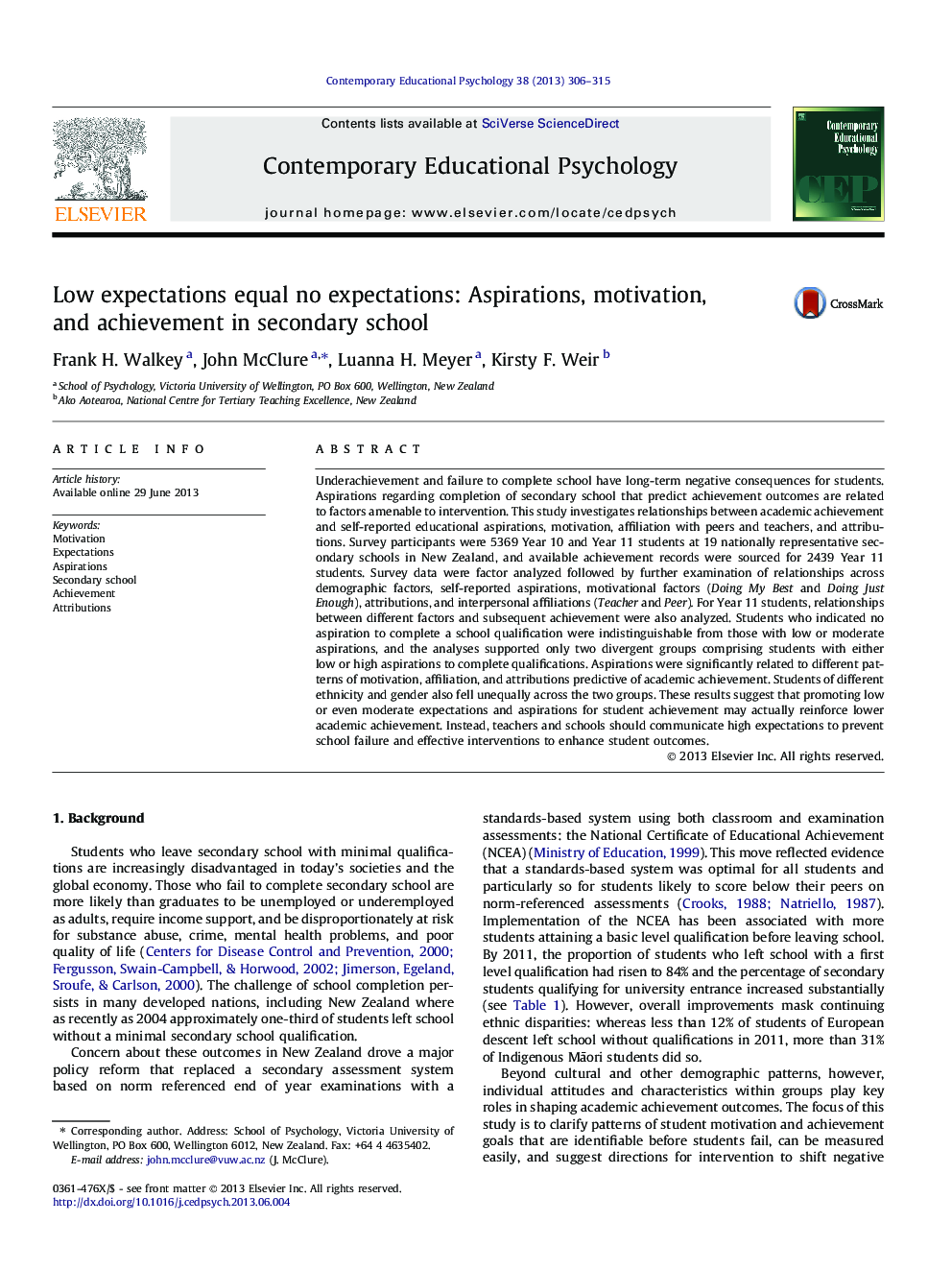| Article ID | Journal | Published Year | Pages | File Type |
|---|---|---|---|---|
| 352686 | Contemporary Educational Psychology | 2013 | 10 Pages |
•Students were divided into four groups based on their qualification goals.•Students with low/moderate goals performed no better than students with no goals.•Students with high goals performed significantly better than the other three groups.•Goals tied in with students’ motives and their attributions for their achievements.
Underachievement and failure to complete school have long-term negative consequences for students. Aspirations regarding completion of secondary school that predict achievement outcomes are related to factors amenable to intervention. This study investigates relationships between academic achievement and self-reported educational aspirations, motivation, affiliation with peers and teachers, and attributions. Survey participants were 5369 Year 10 and Year 11 students at 19 nationally representative secondary schools in New Zealand, and available achievement records were sourced for 2439 Year 11 students. Survey data were factor analyzed followed by further examination of relationships across demographic factors, self-reported aspirations, motivational factors (Doing My Best and Doing Just Enough), attributions, and interpersonal affiliations (Teacher and Peer). For Year 11 students, relationships between different factors and subsequent achievement were also analyzed. Students who indicated no aspiration to complete a school qualification were indistinguishable from those with low or moderate aspirations, and the analyses supported only two divergent groups comprising students with either low or high aspirations to complete qualifications. Aspirations were significantly related to different patterns of motivation, affiliation, and attributions predictive of academic achievement. Students of different ethnicity and gender also fell unequally across the two groups. These results suggest that promoting low or even moderate expectations and aspirations for student achievement may actually reinforce lower academic achievement. Instead, teachers and schools should communicate high expectations to prevent school failure and effective interventions to enhance student outcomes.
